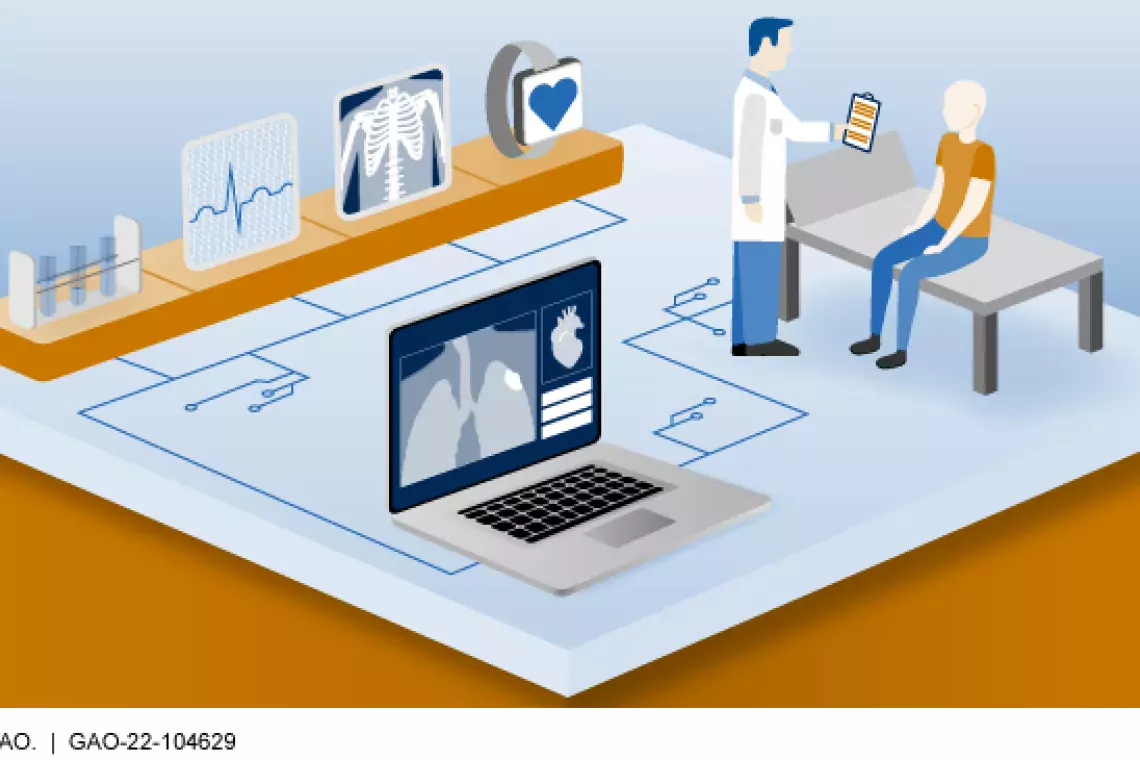Trying to eat better? The federal government leads 200 diet-related efforts aimed to help, but it lacks a strategy
Many chronic health conditions are preventable, yet they are the leading causes of death in the United States. The federal government is trying to help with more than 200 efforts to address these diet-related health conditions, such as diabetes and cardiovascular disease. But there is little government-wide coordination between agencies and programs.
Today’s WatchBlog post explores our new report on federal efforts to address diet-related health conditions in the United States. To learn more, listen to our podcast with GAO’s Sharon Silas and Steve Morris.
How is the federal government responding to diet-related chronic health conditions?
To improve Americans’ diets, 21 federal agencies manage 200 different efforts. Many are managed by the U.S. Department of Agriculture or the Department of Health and Human Services. Others come from unexpected agencies, like the Environmental Protection Agency, which studies how our diets can help mitigate the chronic health effects of air pollution. Federal efforts include scientific research, education outreach, assistance with accessing healthy foods, and regulation of the food industry.
Image

However, neither the White House nor any federal agency is responsible for leading or coordinating diet-related efforts across the government. While the 21 agencies work together on multiple efforts, they are not guided by a government-wide strategy, the absence of which could potentially lead to overlap and duplication of these efforts. A strategy could also help the 21 agencies address gaps in scientific knowledge, including research on the impact of healthy diets for infants and young children.
In our new report, we recommended that Congress consider identifying and directing a federal agency or other entity to lead a federal strategy on diet-related efforts aimed at reducing Americans’ risk of chronic health conditions.
Why does it matter?
Before the COVID-19 pandemic, conditions caused in part by poor diet—specifically cardiovascular diseases, cancer, and diabetes—accounted for half of all annual U.S. deaths (about 1.5 million) in 2018. During the pandemic, people with diet-related conditions were found to be 12 times more likely to die from a COVID infection.
In the military, diet-related chronic health conditions for current service members can affect readiness to deploy and fulfill physically demanding missions. Additionally, more than 30 percent of young people (ages 17-24) do not qualify for U.S. military service because of their weight.
What’s more, spending to treat cardiovascular diseases, cancer, and diabetes accounted for 26 percent of the approximately $1.5 trillion in total health care spending for U.S. adults in 2018. The average total health care spending for adults with these conditions was 30 to 92 percent greater than the average health care spending for all adults who reported a health condition that year, depending on the condition. Federal programs like Medicare and Medicaid accounted for the majority of spending on the treatment of cardiovascular diseases, cancer, and diabetes.
Medicare spending, which is projected to reach $1 trillion per year by fiscal year 2023, and combined federal and state Medicaid spending, which is projected to reach $1 trillion by 2027, contribute to our nation’s unsustainable long-term fiscal path.
- Comments on GAO’s WatchBlog? Contact blog@gao.gov.
GAO Contacts
Related Products

GAO's mission is to provide Congress with fact-based, nonpartisan information that can help improve federal government performance and ensure accountability for the benefit of the American people. GAO launched its WatchBlog in January, 2014, as part of its continuing effort to reach its audiences—Congress and the American people—where they are currently looking for information.
The blog format allows GAO to provide a little more context about its work than it can offer on its other social media platforms. Posts will tie GAO work to current events and the news; show how GAO’s work is affecting agencies or legislation; highlight reports, testimonies, and issue areas where GAO does work; and provide information about GAO itself, among other things.
Please send any feedback on GAO's WatchBlog to blog@gao.gov.




